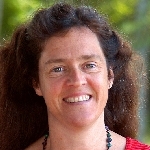 (HOST) As Vermont grows and changes, so do our small towns. As part of our continuing series on the State of Education, commentator Susan Clark examines the relationship between Vermont’s schools, local democracy, and our sense of community.
(HOST) As Vermont grows and changes, so do our small towns. As part of our continuing series on the State of Education, commentator Susan Clark examines the relationship between Vermont’s schools, local democracy, and our sense of community.
(CLARK) Vermont’s school consolidation debate is confusing, and emotions run high. Intelligent people can disagree. But when local schools start being called "anachronistic" and "sentimental," it’s time to take a closer look.
At the core of all political discussions are the things we hold "in common." In agrarian societies, neighbors managed "the commons" where they grazed livestock. Today, our "commons" is more metaphorical, but discussed just as passionately. Today’s "commons"? Our children.
Schools are the heart of our communities. But not just in a sentimental sense. They’re the "heart," in that they’re the pulsing center of local democracy. They beat with community vitality. As children flow into our school system, so do their parents, their teachers, and the voters who pay for them. As we mingle in the chambers of this community heart, we come to know each other, and the different socioeconomic backgrounds and philosophies that make up our communities. We learn governance skills on our school boards. We grapple with "managing the commons" and with cost and quality trade-offs every democratic citizen is responsible for.
We go in as people who live in the same town. We come out as neighbors. Ultimately, the school’s heartbeat pumps out not only educated students, but an energized civic community.
Passion for local schools can’t be dismissed as a relic from a bygone era. In our dynamic global economy, we must model hands-on, sustainable teamwork and flexible adaptation – the very type demonstrated this year by local school boards’ budget-cutting successes. If we want to prepare our students for the future, does it make sense do so with old-fashioned, top-down models of centralized power and consolidation?
It’s no secret that many Vermont leaders got started at town meetings, or on selectboards – and school boards are an especially key starting point for women leaders. In communities, we test our voices on the issues we understand first and best. Here, we not only give our opinions; we’re held responsible for our choices.
Current thinking goes that we can save money in health, human services, and corrections by doing less at the state level. For instance, we’ll offer Restorative Community Justice and programs to reform offenders without resorting to costly prison time. Pay attention to these cost-saving programs: almost all of them assume that strong communities will be there to do this work.
But strong communities don’t just happen. Research shows that social capital – the web of trust and reciprocity that defines an engaged community — is created through a time-tested recipe: face-to-face contact, over time, with a diverse group that has the power to address problems together. No wonder Vermont consistently ranks among the top states for social capital. Can you think of a better description of the work we do in community schools?
Vermont needs to save money. Is eliminating schools and school boards the best option? Yes, the patient needs to lose weight. But let’s think carefully before we assume the answer is open-heart surgery.